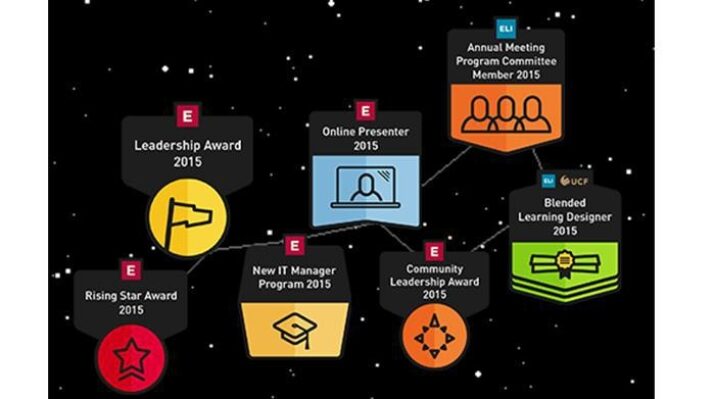Professional Learning
Micro-credentials: Radical Personalization of Professional Development
Topics

Educators are the lead learners in schools. If they are to enable powerful, authentic, deep learning among their students, they need to live that kind of learning and professional culture themselves. When everyone is part of that experiential through-line, that’s when next generation learning thrives.
The Center for Collaborative Education set out to pilot a micro-credential program. The driving question? What impact can micro-credentials have on professional learning in Rhode Island?
The goal of the Performance Assessment for Learning Micro-credential project in Rhode Island was to take the ideals that drive the Center for Collaborative Education’s work—equity, personalization, competency, performance assessment—and project them up so that these values applied not only to students’ learning, but to professional learning, as well. We would create a set of micro-credentials on performance assessment, and then pilot those micro-credentials with fifty or so educators in Rhode Island schools.
Our driving question? What impact can micro-credentials have on professional learning in Rhode Island?
Micro-credentials are electronic “badges” that certify the attainment of proficiency of a particular skill or competency. They are awarded upon the demonstration of proficiency of the skill or competency. Go to a micro-credential warehouse (such as Digital Promise) and you will find that each micro-credential provides three things:
- A description of what proficiency looks like
- The evidence required to demonstrate proficiency
- A list of resources (e.g., writing or videos)
What is absent? Superfluous requirements. Time constraints. Anything related to crowd control. Instruction of any kind! These are performance assessments in their most radical form. “This is what you need to demonstrate,” says the micro-credential, “we are agnostic as to how you gain the skill or knowledge.” The micro-credentials do contain resources, and CCE did provide orientation and coaching to pilot teachers, but as much as possible we were testing the idea of radical personalization in professional learning in order to promote radical personalization in student learning. That was our brief.
We partnered with the Rhode Island Department of Education (RIDE) and the Center for Teaching Quality, and, we found ourselves in the admirable position of being neophytes. Many of the participants (and designers) of the pilot, when introduced to the idea, responded with, “Micro what?” This was fresh territory, but so intriguing! And ethically compelling: How can you assert the necessity of competency-based, personalized learning for students, while leaving professional learning to sit-and-get, seat-time sessions? (#youcan’t)
We quickly discovered that, as far as micro-credentials for professional learning in education were concerned, everyone was a neophyte, still trying to figure out what comprises a micro-credential, how it can be implemented, how will it be integrated into a professional learning system, how much will it “count” for things like re-certification, and how will it relate to “traditional” PD.
In the end, we had to be more epistemologically humble than we might have wished to be. In our pilot, there was no way to follow the chain of effect to the student level, but what we observed from teachers, teams, and leaders was fascinating, rich, and encouraging.
- We saw teachers embracing professional learning that they had chosen (rather than having it mandated).
- We saw the power of collaborative learning groups, which were almost universally entered into by participants.
- We saw the power of rigorous micro-credentials, driving teachers to achieve and demonstrate rather than just clocking seat time.
- We saw both the challenge and the freedom that came from allowing teachers complete agency in shaping their learning and approach to the micro-credential.
One surprising development was that adult education teachers embraced our micro-credentials as a primary avenue to professional learning; the current system provides nothing for them along those lines.
On April 26, 2017, at the end of the pilot, CCE hosted a symposium in Rhode Island to surface the lessons learned in phase one. We invited all participants, the Rhode Island Department of Education, and a goodly number of guests, and had a structured conversation for a few hours. In the video taken from that day (above), you can hear the educators themselves talking about their work and the possibilities they saw in micro-credentials.
In light of the pilot, we've received valuable advice on how to improve the micro-credentials and their implementations, and we're looking forward to making those changes in the next phase. Still, it's clear that micro-credentials—with their clear expectations and radical personalization on how to meet them—are indeed Assessment FOR Learning for professionals. Rather than just setting a bar that determines whether or not the professional has learned “enough,” the micro-credentials drive deeper learning, collaboration, and reflection. More than a measure, micro-credentials are a powerful lever for professional learning.




